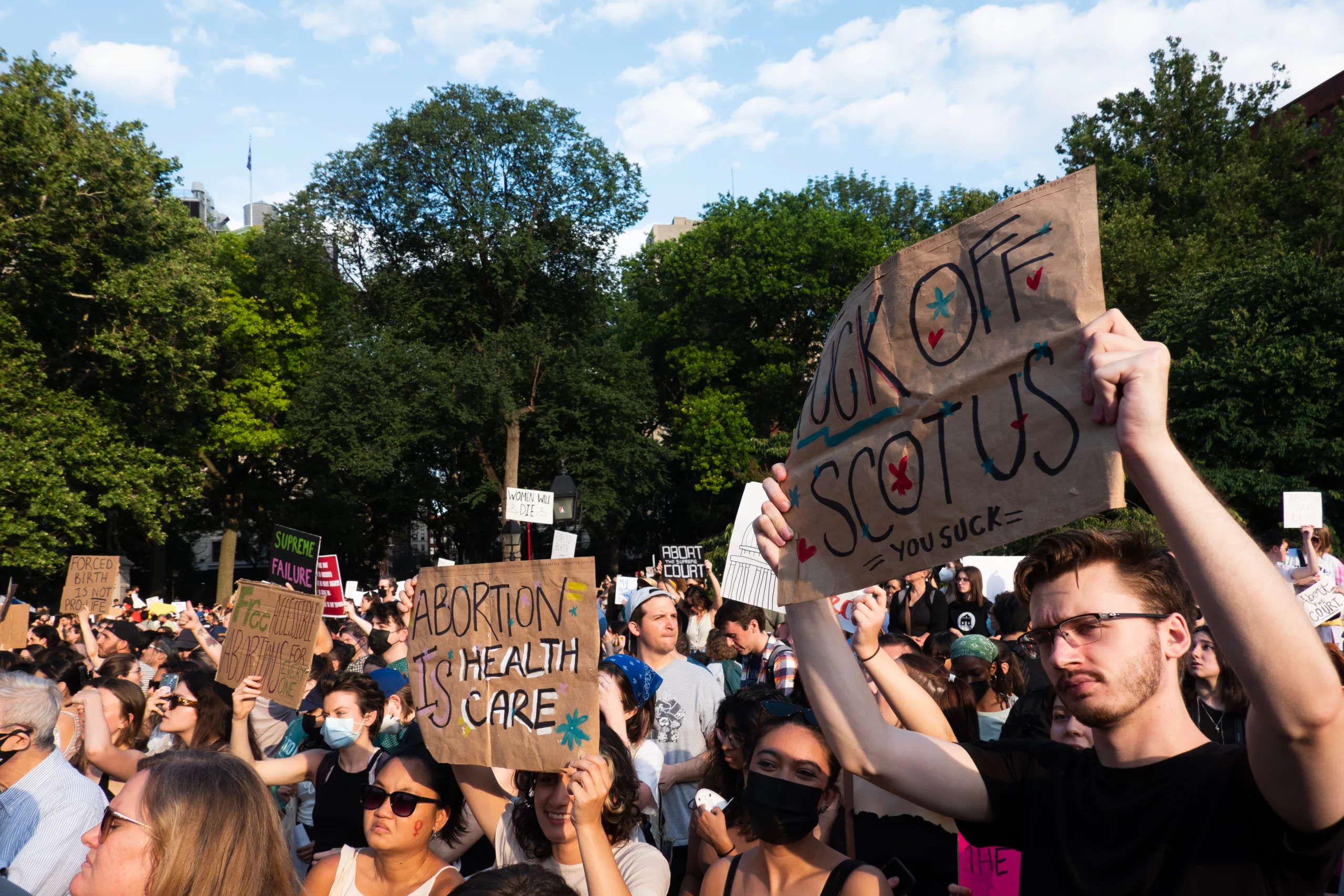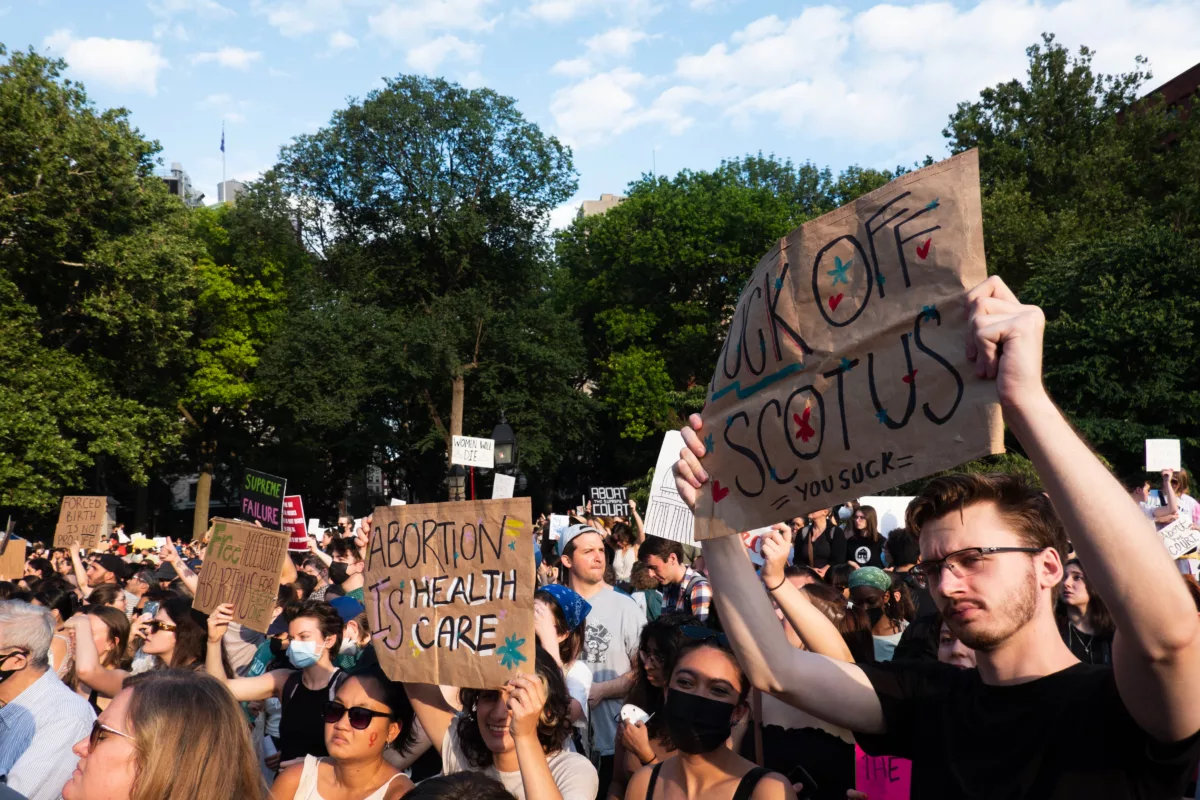Newsletter
Cops and Republicans Are Criminalizing Pregnant People Without Roe
Lawmakers in seven states proposed bills to make abortion murder punishable by death. Cops arrested three women for their pregnancy outcomes.


Cops and Republicans Are Criminalizing Pregnant People Without Roe
by Meg O’Connor
Abortion opponents have long claimed they only want to criminalize providers, not pregnant people. In a 2023 statement entitled, “Why women are not, and should not be, prosecuted for abortion,” anti-abortion group Americans United for Life said that prosecuting women “for the crime of abortion is unwise and contrary to the goals of the movement.”
This is untrue: even while Roe v. Wade was in place, thousands of people were criminalized for having miscarriages, stillbirths, or abortions. And, in the year since the Supreme Court overturned Roe, abortion opponents have prosecuted more women for their pregnancy outcomes and introduced laws allowing criminal charges against people who get abortions.
Women in three states have been arrested and charged for having a stillbirth or allegedly ending their pregnancies. Lawmakers in Idaho made it a crime—punishable by two to five years in prison—to help a pregnant child get an abortion in another state. And lawmakers in seven states introduced bills seeking to classify abortion as homicide, which is punishable by death in each jurisdiction.
In August, police in Norfolk, Nebraska, arrested 41-year-old Jessica Burgess and her then-17-year-old daughter, Celeste Burgess, after the teen allegedly took abortion pills at 29 weeks. Local news reported that police began investigating the family last April after someone told police the teen had miscarried and her mother had buried the remains. Prosecutors initially charged the teen and her mother with concealing a dead human body—a felony—and two misdemeanors. But after Facebook’s parent company Meta provided police with messages between the teen and her mother, Madison County Attorney Joseph Smith filed additional felony charges against the elder Burgess for allegedly performing an abortion after 20 weeks and performing an abortion as a non-licensed doctor. The teen took a plea deal and faces up to two years in prison. Her mother faces eight years.
The Burgesses are not the only people law enforcement has targeted this way. In February, police in Greenville, South Carolina, arrested a woman for allegedly taking abortion pills at 25 weeks. According to a police report obtained by Jezebel, the then-33-year-old woman was taken by an ambulance to a local hospital in 2021 because she was experiencing contractions. Police allege the woman told hospital staff she had taken abortion pills. Greenville police arrested the woman for performing or soliciting an abortion. She faces up to two years in prison.
In May, the Pike County Sheriff’s Office in Alabama arrested 24-year-old Chelsey Redmon-Zellers for having a stillbirth. The local district attorney’s office charged Redmon-Zellers with chemical endangerment, a felony, for allegedly using drugs during her pregnancy. Law enforcement officials allege a toxicology report showed drugs in the baby’s system. She is being held on a $200,000 bond. She faces a Class A felony, which carries a sentence of 10 to 99 years in prison. Alabama Attorney General Steve Marshall said earlier this year that he could use the state’s chemical endangerment law to prosecute people who take abortion pills to end their pregnancy—before walking the statement back days later.
Legislators in seven states—Alabama, Arkansas, Kentucky, Missouri, Oklahoma, South Carolina, and Texas—sought to add more tools to law enforcement officials’ arsenal this year when they introduced bills to allow people who get abortions to be prosecuted for murder. In all seven states, homicide is punishable by the death penalty. None of those bills have so far become law.
Republican lawmakers in Alabama, Arkansas, and Kentucky introduced legislation to treat fetuses as people and allow abortions to be prosecuted as homicides. The bills either died in committee or failed to advance before the state’s legislative sessions ended.
Lawmakers in other states mounted similar attacks. In Missouri, Republican State Sen. Mike Moon introduced the “Abolition of Abortion” Act, which would give fetuses the same rights as people and allow murder charges to be filed against anyone who gets or performs an abortion. The bill was heard in May but did not advance further before Missouri’s legislative session ended.
Republican State Sen. Warren Hamilton in Oklahoma introduced a bill to strike language from the state’s criminal code prohibiting the prosecution of women for “the death of her own unborn child.” This would have allowed prosecutors to charge people who terminate pregnancies with felonies punishable by up to 10 years in prison and $100,000 in fines. The bill did not advance before the end of Oklahoma’s legislative session. In Texas, former Republican State Rep. Bryan Slaton introduced a similar bill to treat fertilized embryos as people, thus allowing abortions to be treated the same as capital murder. Republican State Sen. Bob Hall introduced an identical bill in the state senate. The bills were referred to committee but did not advance further before the end of Texas’s legislative session.
In South Carolina, Republican State Rep. Rob Harris introduced a bill to change the definition of a “person” to include “an unborn child at every stage of development from fertilization until birth,” thus allowing people who get abortions to be charged with murder. The bill attracted 21 co-sponsors and advanced to committee but ultimately floundered amid outcry over the fact that, due to South Carolina’s existing homicide laws, the legislation would have allowed people to get the death penalty for having an abortion.
While none of these bills became law, the fact that they were introduced at all shows that abortion opponents are done pretending they don’t want to incarcerate or kill people who have abortions. Laws criminalizing abortion have already had severe consequences. When abortions are criminalized, people who become pregnant are forced into tragic circumstances. A woman in Texas was forced to give birth to a baby with no brain. Children have been forced to become mothers. Because Florida law prevented her from getting an abortion, Deborah Dobert was forced to carry to term a baby with no kidneys, despite knowing he would die upon birth. Her son, Milo, died in her arms shortly after he was born. “I watched my child take his first breath,” Dobert said, “and I held him as he took his last one.”
ICYMI — from The Appeal
U.S. Representatives Ayanna Pressley and Rashida Tlaib introduced legislation that would limit landlords’ abilities to use criminal background checks when screening potential tenants.
”Hazardous” air engulfed more than 140 detention facilities earlier this month, according to an analysis by Alleen Brown. Air quality readings at over 20 facilities literally went off the chart, peaking at indexes above 500. As wildfires get worse, so will these threats.
In the news
Almost thirty years ago, Barry Jones was sentenced to death for a crime he has always maintained he did not commit. Last week, he was finally freed from prison. [Liliana Segura / The Intercept]
A new study found that more people die of overdoses after police seize illicit opioids. The report was published in the American Journal of Public Health and funded by the Centers for Disease Control and Prevention. [Manisha Krishnan / Vice]
The U.S. Senate confirmed civil rights attorney Nusrat Choudhury to the U.S. District Court for Eastern New York, making her the country’s first Muslim female federal judge. [Sakshi Venkatraman / NBC News]
Gov. Ron DeSantis appointed Emily Lazarou and two other doctors to evaluate the mental health of death row prisoner Duane Owen. The doctors concluded Owen was faking his mental illness to avoid execution. Last week, she criticized a vigil for Owen that was shared on social media. On June 15, Owen was executed. [Romy Ellenbogen and Dan Sullivan / Tampa Bay Times]
Staff have sexually abused countless women incarcerated in federal prisons. “More than five years after the first wave of the #MeToo movement, the voices of the roughly 11,000 women incarcerated in federal prisons have been excluded,” writes Natalia Galicza. [Natalia Galicza / Deseret News]
That’s all for this week. As always, feel free to leave us some feedback, and if you want to invest in the future of The Appeal, donate here.
